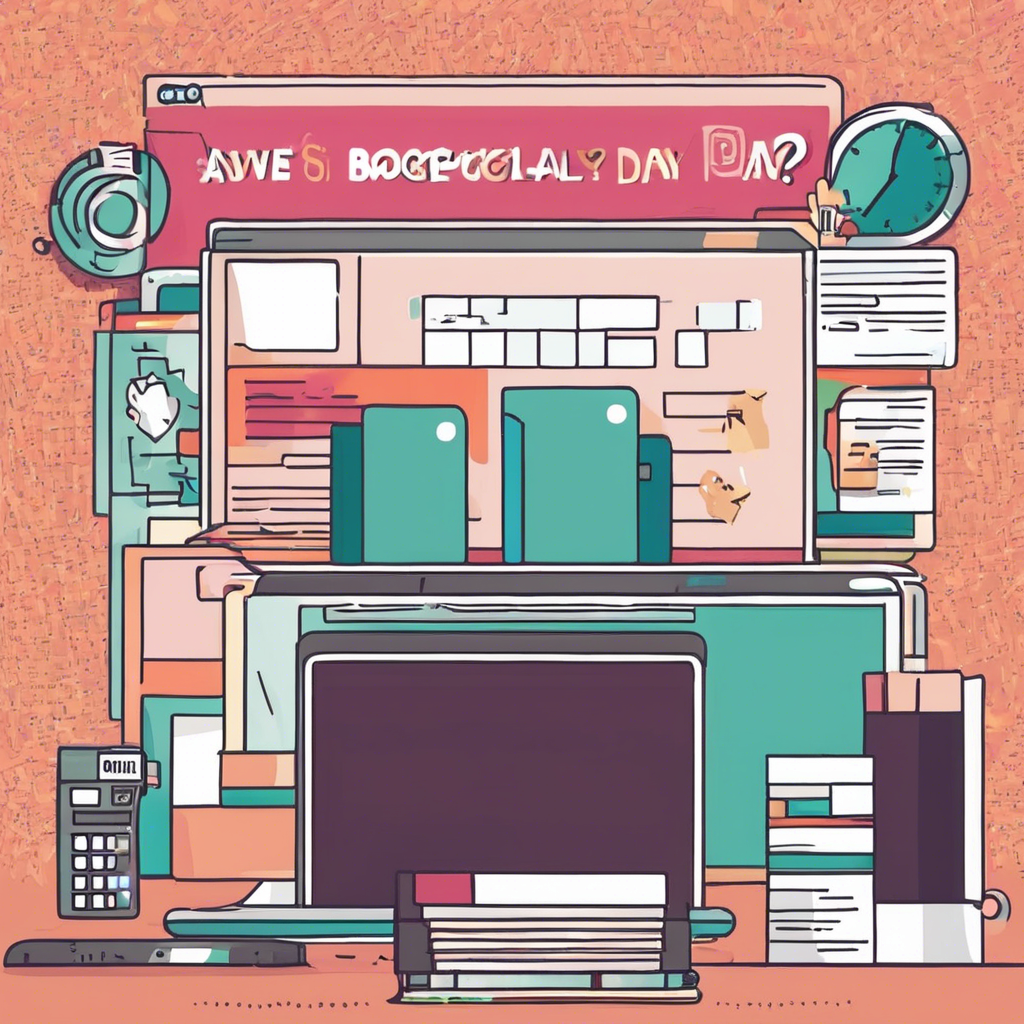Blogging has become an increasingly popular avenue for people to share their passions, expertise, and thoughts with the world. But beyond the satisfaction of creative expression, many aspiring writers and content creators wonder, “Can I actually make money from blogging?” The short answer is yes, blogging can indeed be a profitable endeavor, but it’s not as simple as setting up a website and waiting for the cash to roll in. In this article, we’ll explore the realities of making money through blogging and the strategies you can employ to turn your online writing into a successful business.
The reality of making money from blogging is that it takes time, effort, and a strategic approach. Building a successful blog requires more than just writing skills; it demands consistency, dedication, and a strong understanding of your target audience. Many top bloggers have shared their experiences, emphasizing that earning a substantial income from blogging often takes months or even years of hard work. One of the most important aspects of successful blogging is consistently creating valuable content that resonates with your readers. This means understanding your niche market, conducting thorough research, and delivering content that offers real value to your audience. Whether you’re sharing personal experiences, expert advice, or the latest industry trends, ensuring that your content is engaging, informative, and relevant is crucial to building a loyal readership.
[Insert Image: A person writing on a laptop with a caption: “A dedicated blogger creating valuable content.”]
Monetizing your blog can be achieved through various methods. One of the most common approaches is through display advertising, where you partner with ad networks like Google AdSense to display relevant ads on your website. The revenue generated from these ads depends on several factors, including website traffic and ad placement. As your blog gains traction and attracts a larger audience, you can expect higher ad revenue. Another popular monetization strategy is affiliate marketing, which involves promoting other companies’ products or services on your blog. When your readers make a purchase through your affiliate link, you earn a commission. This method can be lucrative, especially if you promote products that align with your blog’s content and audience interests. For instance, a fashion blogger might promote clothing or accessory brands that their readers would love, earning a commission on each sale.
Sponsored content is another way bloggers can monetize their platforms. Companies may pay you to create content that promotes their products or services, allowing you to earn income directly from your writing. However, it’s essential to maintain transparency and disclose sponsored partnerships to build trust with your audience. Building an audience is a critical part of the equation. To attract sponsors and advertisers, you need to demonstrate the reach and engagement of your blog. Social media platforms are invaluable tools for promoting your content and connecting with potential readers. Utilizing hashtags, sharing engaging teasers, and interacting with your audience can help you grow your online community. Additionally, guest blogging on established websites and collaborating with influencers in your niche can expand your exposure and drive more traffic to your blog.
Creating and selling your own products or services is another lucrative opportunity for bloggers. Many successful bloggers offer online courses, ebooks, or consulting services related to their area of expertise. For example, a travel blogger might create a comprehensive guide to budget-friendly travel, selling it directly to their followers. Building an email list is crucial for this strategy, allowing you to communicate directly with your audience and promote your offerings. Email marketing is a powerful tool to nurture relationships with your readers and convert them into customers.
As your blog grows, you might also consider diversifying your income streams by exploring podcasting, video content, or merchandise. These additional channels can attract new audiences and provide more opportunities for monetization. However, it’s essential to maintain a consistent and engaging brand across all platforms to keep your audience interested. The key to long-term success in blogging is to focus on building a community rather than just a website. Engage with your readers through comments, emails, and social media interactions. Respond to their questions, seek feedback, and create content that solves their problems or addresses their interests. By fostering a sense of community, you’ll cultivate a dedicated audience that actively supports your work and is more likely to invest in your offerings.
In conclusion, blogging can be a rewarding and lucrative endeavor, but it requires dedication, creativity, and a strategic approach to monetization. Building a successful blog involves creating valuable content, growing your audience, and exploring diverse income streams such as display advertising, affiliate marketing, sponsored content, and selling your own products or services. By focusing on providing genuine value to your readers and continuously adapting to the evolving digital landscape, you can turn your passion for writing into a thriving online business. So, if you’re considering starting a blog, remember that the journey to profitability may be challenging, but with persistence and a well-thought-out strategy, you can make your blogging dreams a reality. Happy blogging!

